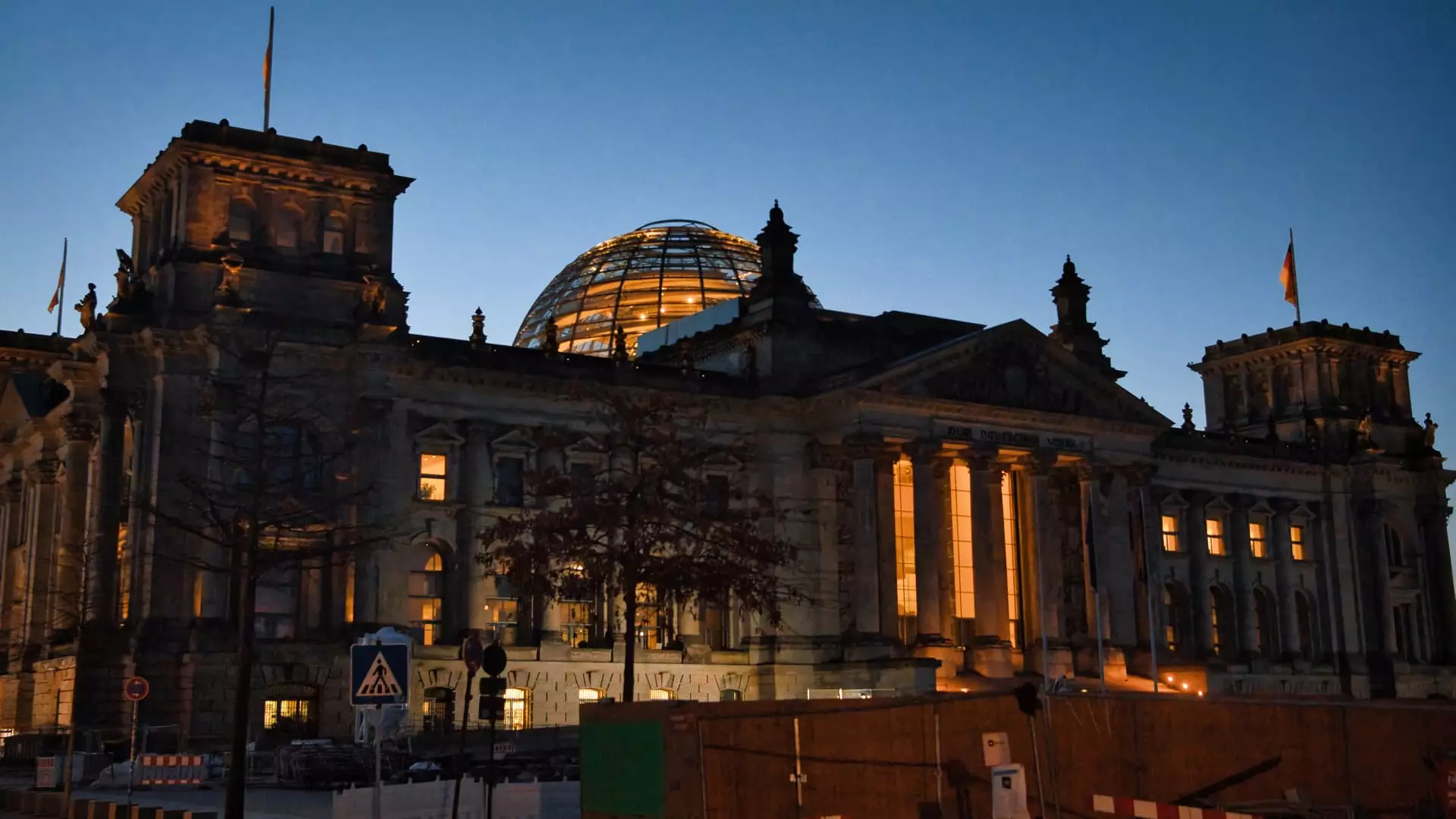As Germany’s Bundestag gears up for a pivotal vote aimed at reshaping its financial landscape, one must question the larger ideological implications of such a massive fiscal package. With the proposed legislation, which encompasses amendments to the nation’s long-standing debt policies to favor enhanced defense spending and a staggering 500 billion euro ($548 billion) fund dedicated to infrastructure and climate, the stakes could not be higher. This bold initiative raises pressing questions not only about fiscal responsibility but also about the moral and pragmatic goals of liberal governance in contemporary Germany.
This legislative maneuver is not simply a response to immediate economic pressures. It is, in many ways, an existential reckoning for a nation torn between its historical role as a staunch advocate of fiscal conservatism and the growing demands of a multifaceted modern society. The move to bypass the so-called “debt brake,” a stringent rule limiting government liabilities, sends a clear message: in times of crisis, expanding capabilities in defense and environmental stewardship are paramount. To dismiss them is to deny Germany’s role on the global stage.
A Constructive Coalition: Unlikely Allies or False Promises?
An interesting twist lies in the collaboration between the Christian Democratic Union (CDU), its sister party the Christian Social Union (CSU), and the Social Democratic Party (SPD). This coalition, born out of necessity, seems to reveal a troubling trend: the willingness of center-wing parties to compromise their foundational principles for the sake of expediency. While their need for a collaborative government is commendable, the question arises—does this signify a dilution of liberal values in favor of practical governance?
Even more confounding is the necessity of negotiating terms with the Green Party. The fact that 100 billion euros of the infrastructure fund is earmarked for climate initiatives demonstrates a step in the right direction, yet it feels somewhat superficial amidst the looming cloud of heightened military expenditure. One cannot help but ask if this commitment to climate transformation is truly robust or merely an appeasement to placate dissenters within their coveted governance apparatus.
The Economic Reality: Struggling but Resilient
The proposed fiscal measures come at a particularly precarious time for Germany’s economy, which narrowly evaded a technical recession in 2023 and is predicted to remain stagnant, experiencing barely 0.2% growth. The stark reality is that without systematic reform, continuous underinvestment in crucial infrastructure may lead to long-term repercussions that could leave Germany trailing its European counterparts. The proposed plan for a large-scale infrastructure initiative, albeit with noble intentions, risks being stymied by inefficient bureaucracy and a lack of coherent execution, especially if political will wavers in the face of opposition.
Furthermore, the vulnerable economic sectors, including housing and automotive industries, remain exposed to external shocks, particularly the threat of tariffs from the United States under former President Donald Trump. Germany, with its heavy dependence on exports, finds itself at a crucial juncture—a time when strengthening domestic capabilities is imperative. This makes the necessity for agile economic reform even more urgent.
Future Implications: More Than Just Numbers
If passed, this fiscal package could symbolize a broader ideological shift within contemporary German politics, one where pragmatic solutions take precedence over dogmatic fiscal conservatism. However, this transition is fraught with risks. Will Germany’s leaders be able to push through a progressive agenda while maintaining the delicate balance between fiscal prudence and societal responsibility?
The anticipated two-thirds majority required for passage in parliament reflects not just a political milestone but a moral imperative to reshape Germany’s financial priorities. Facing a more diverse coalition landscape, the true test lies ahead—whether these leaders can inspire hope and resilience in a population weary from economic stagnation. Ultimately, this challenging endeavor may redefine what it means to be a liberal nation in the modern world.


Leave a Reply